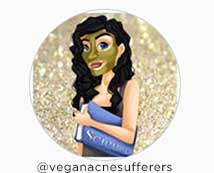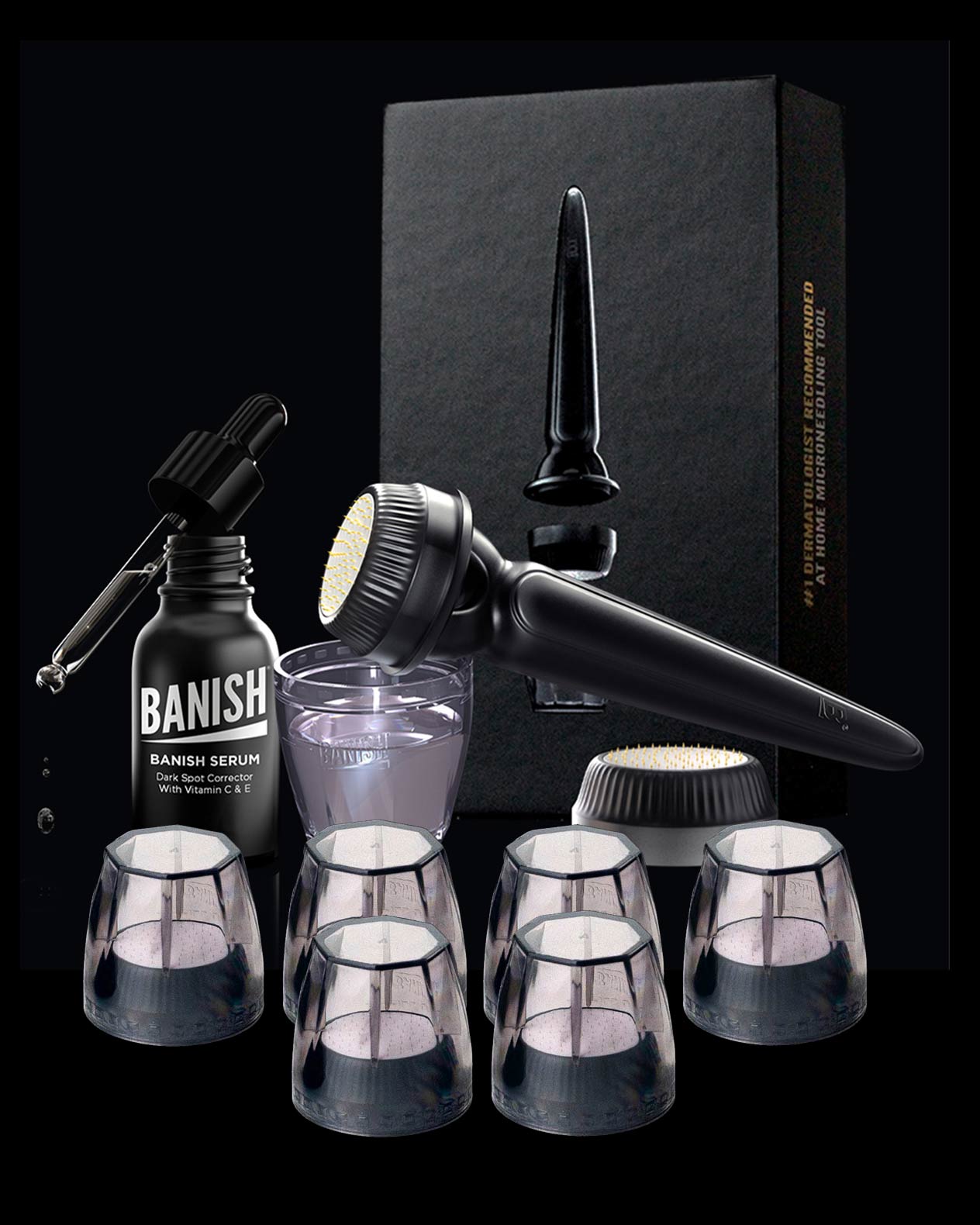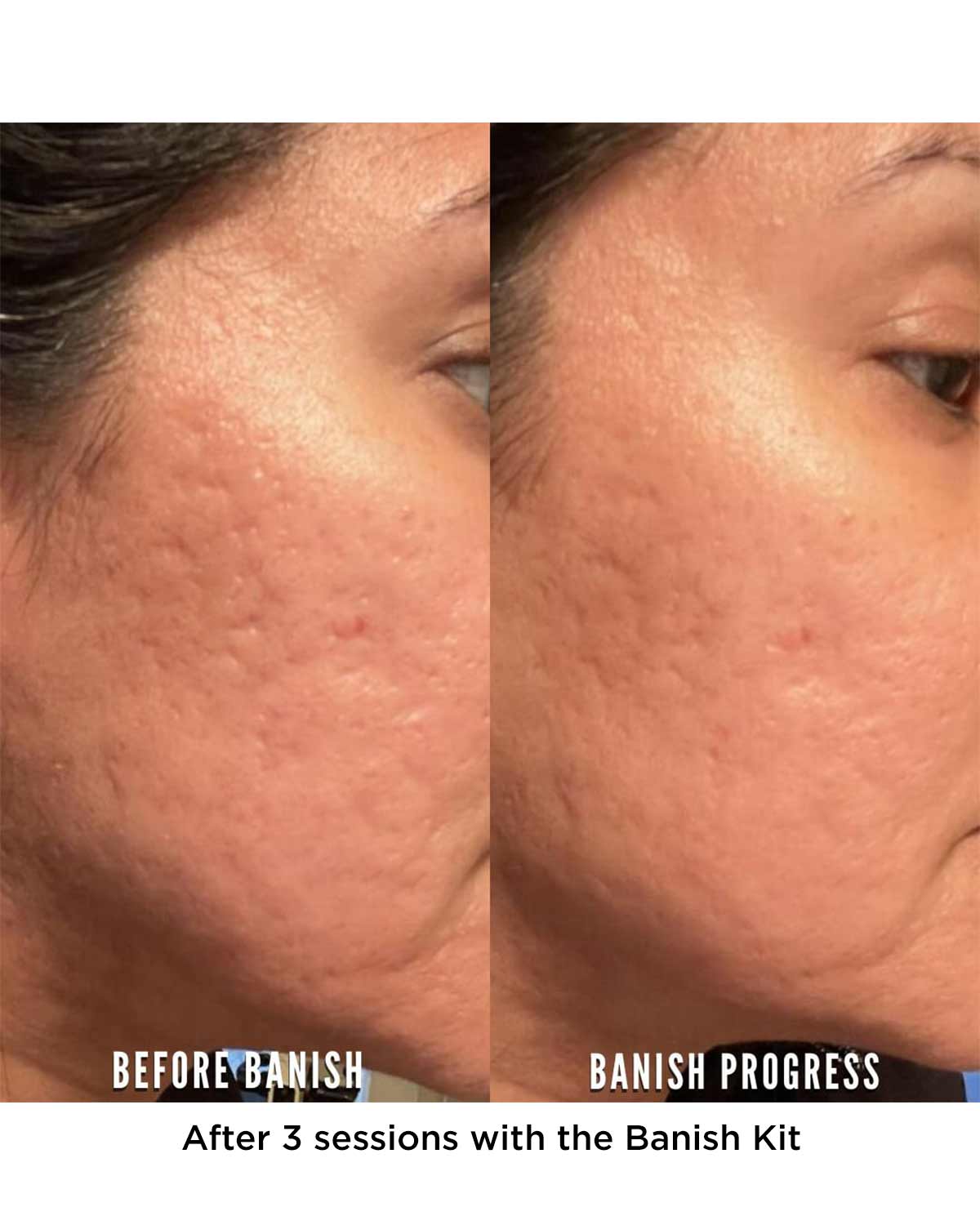Acne on the cheeks can sometimes be the most persistent acne, and its roots sometimes elude us. The rest of our face is finally clear, but that pesky cheek acne just will not go away!

Cheek acne can be from a variety of things. Contrary to popular pseudomedical belief, there's no link between your lung health and your cheek acne. Wouldn't that be easy, huh? Acne on your left cheek - your left lung isn't working properly. Not so. At least not proven, not yet. If there is any connection, we are completely unaware, and the medical evidence is hiding in someone's dusty old office.
But for the time being, let's focus on what we do know about cheek acne, and how that can influence your skin.
Cheek acne can result from any number of the following reasons:
1. A lack of facial cleanliness could be at the root of your cheek acne if your cheek acne is fairly mild. Mild acne anywhere on the face could be caused by this; this may mean you're using the wrong cleanser, the wrong moisturizer, not washing properly (or at all), etc. If your cheek acne is only mild, try new products.
2. Rosacea can often be the cause of cheek acne and often goes mis-self-diagnosed as acne. See a doctor if you think your cheek acne may be caused by rosacea, especially if you're an adult and the skin around the acne is particularly inflamed, red, and possibly dry and easily irritated.
3. Stop touching your face. Sometimes we don't realize it, but our hands actually touch our faces a LOT during the day. We type on dirty keyboards and touch dirty door handles, we brush our hands through our hair and get oil on them, we pet our furry companions, we hold a loved one's hand - and then we touch our face. Even if you're washing your hands, you may not be getting all the bacteria off your hands that could then be transferred to your face. The best practice is to simply do your best to quit touching your face. If you have to itch, wash your hands first, and absolutely do not pick or scratch at your skin with nails or fingers. It's a habit you should break.
4. Spend a lot of time talking on the phone? Maybe you're a telemarketer, or you work in IT. Or, maybe you're just a Chatty Cathy and you love to talk to your friends about any old thing. If that's the case, consider using speakerphone when possible, or bluetooth. Our phones are riddled with bacteria, picking up germs from every surface it touches: your purse, your pocket, the ground, your desk, your bed. And then your pushing it up against your cheek for extended periods + the phone is likely heating up against your skin creating moisture and friction to further irritate the area. If you simply cannot part ways with your beloved technological friend, carry around antibacterial wipes to give your phone a good once-over every now and then.
5. Don't forget to wash your sheets and change your pillow cases regularly. It amazes me how many people come to me with cheek acne and when I ask about the pillow case they drop a bomb on me - I only wash my pillow case once every two weeks. Ew. No. Gross. Your pillow case is pressed against your face for a good chunk of every night. You sweat, your dead skin cells get stuck to it, bacteria spreads, and who knows whether your cat just licked her butthole on your pillow case?! Wash that thing!
Alternatively, you may also want to invest in pillow cases designed to be gentle on your sensitive, acne-prone skin, such as the Nufabrx pillow case for blemish-prone skin. It is made from bamboo, infused with essential oils like tea tree oil and lavender which may help fight acne.
Also keep in mind it's a good idea to replace your pillow every two years. Not only do they lose their oomph after a while, but they, too, build up bacteria, sweat and dead skin.
6. Something you maybe never thought of before, was your dental hygiene. Acne on the lower part of your cheeks may actually have a lot to do with your dental health; cavities, infections and other oral problems may result in pimples! This reiterates the importance of brushing and flossing, as well as regular dental check-ups.
7. Recurrent and severe cheek acne that does not stretch onto other parts of the face could also be caused by hormonal imbalances, as well.
At the end of the day, if you've tried it all and you've still got acne - you may be one of the unlucky folks who has persistent and recurring acne that needs to be treated with things like isotretinoin.
------------------------------------------------------------------------------
Guest Blog By:
I first got acne in high school, and it came back in my early adulthood. I was able to struggle through those difficult times and come out of it a stronger, wiser, healthier person as a result. I'm here to help you do the same thing!























Leave a comment
All comments are moderated before being published.
This site is protected by hCaptcha and the hCaptcha Privacy Policy and Terms of Service apply.